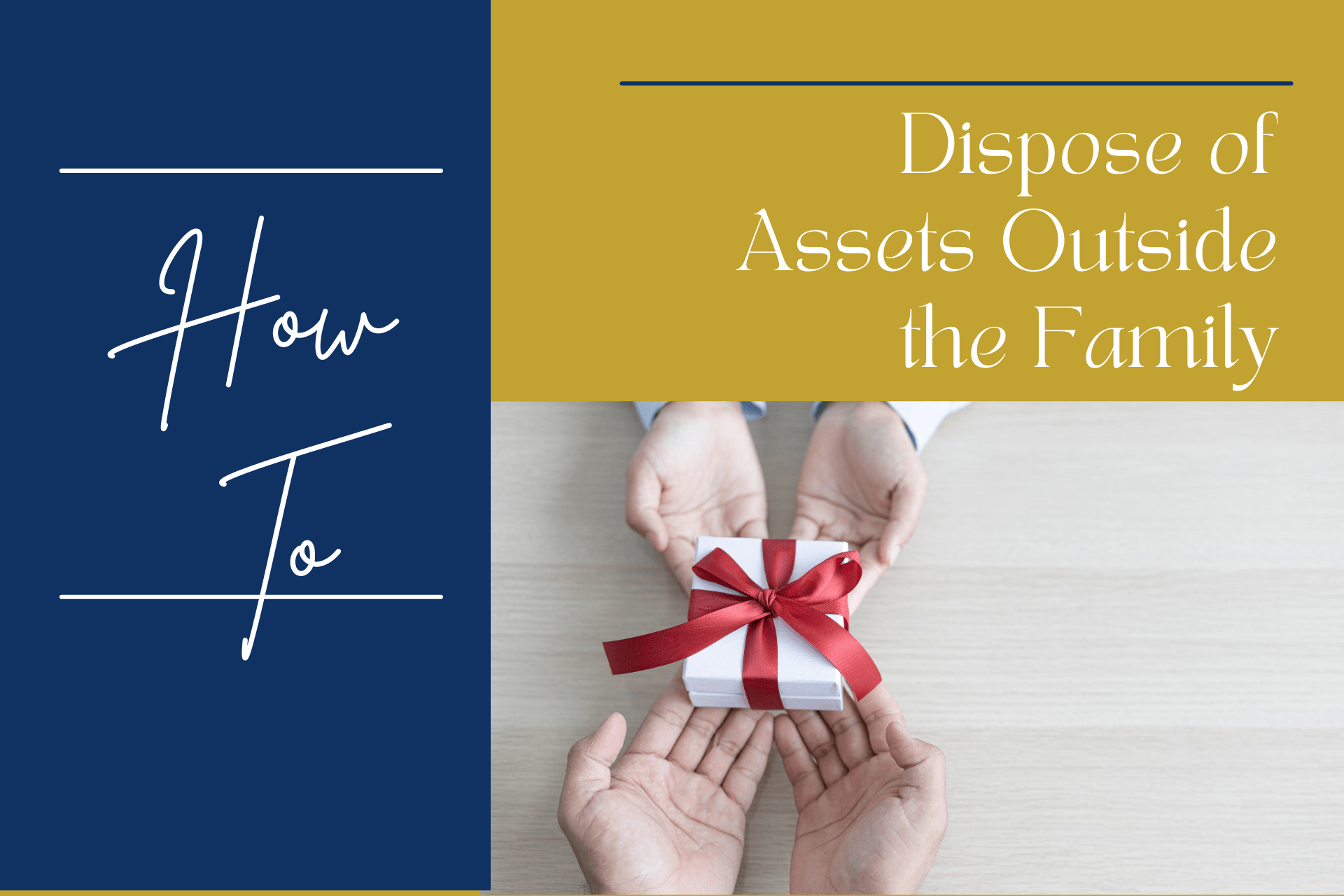How to Dispose of Assets Outside of Your Family
Are you writing your will and want to leave some or all your assets to people outside your family?

Estate planning isn't just about distributing your things after you're dead; it's about the relationships you've established in your life. It's difficult to face your own mortality, but it's important to make plans to leave items to people in your will or through a living trust.
If you die without a will, your assets will pass to members of your family. The law is concerned with providing for your spouse and children, but if you don't have either of those, then your assets will pass to the nearest available relative or, failing that, the government.
If there's someone other than family whom you'd like assets to go to after you die, you have to make that wish known now. Be aware that your family might fight the transfer of your property to friends, and they might have a legal right to do so. One way to ensure that an asset goes to a friend is to give it as a gift while you're still alive. If that doesn't appeal to you, you can create testamentary documents describing how you want your things to be distributed. Select someone to act as your executor or personal representative who'll see your plans are carried out as you wish and who is willing to fight if family members object.
Get it down in black-and-white
If you want certain items to go to certain people, your will needs to be very specific. Many states allow for a separate list of items with information about whom you want to inherit what. This list is considered valid if it's referred to in the will. Lists like this aren't intended to distribute money or other intangible assets. They're a way to distribute items around your home that might have sentimental value.
Remember that any decision you make can be challenged in court. Dramatic as it may be when a character in a novel slights a relative by leaving him out of the will, in real life, that relative could easily sue. But giving your favorite beer stein to a friend who always admired it is a nice gesture that everyone would probably approve of. To be sure, warn your loved ones in advance to eliminate surprise. If you think your family wouldn't have an issue with or already expects certain people to get some money, talk to them about your intentions.
One of the best ways to secure assets for a friend or companion is to set up a trust. You have more control over when the person receives the money, and it may settle any family concerns.
A carefully prepared, up-to-date estate plan is essential to leave assets to friends. There may be people in your life you consider family but who may not be recognized legally as relatives. Investment and bank accounts with transfer-on-death designations won't usually go to beneficiaries outside your immediate family. You can leave IRA and 401(k) assets to someone outside the family but may need a spouse's permission to do so.
Laws pertaining to estate planning and inheritance rights vary between jurisdictions. Whether you are leaving just a few items of merely sentimental value or substantial assets, be sure to work with qualified professionals so your wishes are carried out with no surprises to your heirs.
Copyright HomeActions, LLC © 2012 - 2022. Powered by IndustryNewsletters, v5.8.17











Share On: